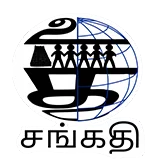
Having had a keen interest in marine conservation since the inception of its environmental arm, Dilmah Tea is strengthening its investments in blue carbon – particularly mangrove conservation and sustainable seaweed harvesting in keeping in line with the UN decade of (ecosystem) restoration in 25 acres of land in Kappaladi Kite Lagoon in Kalpitiya, a company news release said.
Dilmah Conservation (DC), the sustainability arm of the tea company, is restoring mangroves. Currently a nursery with over 800 mangroves saplings consisting of seven species has been established and once at a ready height the saplings are planted in the degraded mangrove forest area. Meanwhile in Mannar, around 10 acres of land are being used for seaweed cultivation through sustainable methods, the release said.
Investing in blue carbon by restoring such ecosystems can contribute towards climate resilience as mangroves and Seaweed are better at storing carbon that terrestrial forests. Mangroves can absorb up to five times more carbon than forest trees. Similarly, seaweed generates more oxygen that land plants and absorbs more carbon too, it explained.
“A standout feature of Dilmah Conservation has been its collaborations and partnerships with different stakeholders and establishing the project on a strong scientific foundation. The organization partly attributes public-private partnerships for the long-term success of its marine conservation-related projects and therefore collaborates with the Marine Environmental Protection Authority (MEPA) and National Aquaculture Development Association (NAQDA) and maintains dialogues with universities and independent organizations such as Pearl Protectors,” the release said.
“Under the Defending Mangroves project, a baseline survey in collaboration with MEPA helped identify types of mangroves existing in the area, suitable locations for restoration, and ideal mangrove species suited to the area. Hands-on experiential learning sessions with schools in the area have also been instrumental in generating awareness about the importance of these ecosystems.
“For maintaining a nursery Dilmah has employed community members. The value of mangrove ecosystems stands in stark contrast to the dearth of available research. Therefore, Dilmah will establish a research station to strengthen the success of the project and make it replicable in other parts of the island as well.”
Under the sustainable seaweed cultivation project: Afforesting Underwater, DC has sought technical expertise and works closely with the National Aquaculture Development Association (NAQDA) to develop community fishermen into sustainable seaweed farmers. So far, around 10 acres have been cultivated in Pesalai, and plans to expand to other parts of the coastline are underway, the release further said.
“As conservation and culture overlap Dilmah takes into consideration sustainable livelihood upliftment in its projects. Thereby, in a collaborative effort seaweed agripreneurs were empowered through an incubator program known as the Lost Ingredients Lab.
“Education and awareness are one of the important pillars for Dilmah Conservation, thus the organization has consecutively sponsored the Pearl Protectors’ World Ocean Summit – a landmark event spearheaded by the independent marine conservation organization. In 2021 this was the largest virtual summit in Sri Lanka. This year the event was held at One Galle Face Mall to the enthusiasm of the public.”
Muditha Katuwawala, Founder of Pearl Protectors said, “We are absolutely delighted to have Dilmah Conservation onboard towards celebrating World Oceans Day for the second year. The Pearl Protectors have been consecutively celebrating world oceans day through knowledge sharing, art competitions, and inspiring the generation of Ocean enthusiasts. We hope our collaborative efforts will continue to positively impact the marine environment in Sri Lanka”
Driven by Dilmah Tea founder’s vision of creating a better tea for people and the planet, the tea company has constantly initiated projects to impact terrestrial ecosystems. Marine ecosystems are also close to Dilmah’s heart. In the past initiatives such as enabling the gazetting of an important reef called Kayernkerni in Kalkudah as a marine sanctuary, education, and awareness creation about Dugons in a fishing community, and keeping 50 km of the coastlines free by employing 50 caretakers, the release concluded.


